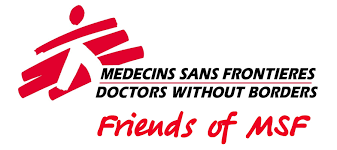After seven years of vital support from Médecins Sans Frontières (MSF), local health authorities in Ebonyi State are now equipped to manage Lassa fever independently, bolstered by improved infrastructure, training, and resilience—saving lives and restoring confidence in the healthcare system.
In early 2018, Ebonyi State in southeastern Nigeria grappled with a severe Lassa fever outbreak. The viral haemorrhagic illness—a neglected tropical disease—hit hard, overwhelming hospitals and claiming numerous lives, particularly among healthcare workers most at risk of exposure.
“We lost doctors, nurses, and cleaners,” recalled Dr Nnennaya Anthony Ajayi, then Head of Clinical Services at the Virology Unit of Alex Ekwueme Federal University Teaching Hospital Abakaliki (AE-FUTHA), the state’s main referral centre. “There was panic. Sixteen healthcare workers died. People were afraid to go near the emergency room.”
Despite existing efforts by the federal and state governments—such as building an isolation ward and establishing a virology lab—AE-FUTHA was unprepared for the outbreak’s scale. Personal protective equipment (PPE) was in short supply, infection control protocols were lacking, and diagnostic samples had to be sent to distant labs for confirmation. Patients were sometimes left in open spaces, heightening the risk for staff.
It was in this context that MSF, also known as Doctors Without Borders, arrived in Abakaliki. What began as an emergency intervention evolved into a seven-year partnership with the Ebonyi State Ministry of Health, laying the foundation for sustainable, locally led Lassa fever care.
Protecting health workers, enhancing patient care
MSF’s immediate priority was clear: protect healthcare workers and stop avoidable deaths.
“We had to put an end to this series of avoidable deaths,” said Alain-Godefroid Ndikundavyi, MSF’s most recent Project Coordinator in Ebonyi. “Our goal was to reverse that trend and strengthen the hospital’s capacity to receive and treat patients.”
MSF’s support included the construction of triage and observation areas, the provision of PPE, implementation of robust infection prevention and control (IPC) systems, and intensive training for local staff.
“They helped us structure patient flow, IPC and biosafety measures, and provided what we needed to work safely,” Dr Ajayi said. “They brought structure, training, and—most importantly—hope.”
More than 230 training sessions were conducted for healthcare workers, and laboratory capacity was enhanced to enable quicker diagnosis. A comprehensive new care model was introduced to protect staff and improve patient outcomes.
Between 2018 and 2024, MSF supported the treatment of 1,701 suspected and 427 confirmed Lassa fever cases. Importantly, they covered the full cost of patient care—including dialysis, medication, and meals—helping to significantly reduce fatalities.
Crucially, deaths among healthcare workers dropped dramatically, with some years recording none at all.
Extending care beyond hospital walls
MSF recognized that defeating Lassa fever required action at the community level, not just in hospitals. In areas with low awareness and delayed healthcare-seeking behaviours, the disease thrives.
“To bridge that gap, we mobilised health promotion teams that conducted over 4,500 education sessions and nearly 1,300 community visits across Ebonyi State,” said Ndikundavyi. “These efforts demystified the disease, corrected misconceptions, and encouraged early treatment.”
In rural areas, MSF supported two primary healthcare centres—Izzi Unuhu and Onuebonyi—through training, provision of laboratory equipment and medical supplies, and the construction of water towers for safe sanitation. This community-level support aimed to detect Lassa fever cases early and reduce pressure on AE-FUTHA.
“We realised that to truly fight Lassa, the response had to start at the community level,” Ndikundavyi added.
A new chapter begins
In 2025, MSF formally handed over its operations to the Ebonyi State Ministry of Health and AE-FUTHA. This well-planned transition included donations of medical equipment, ambulances, and waste management tools—enough supplies to last through the next Lassa fever peak season.
“We officially handed over management responsibilities at the end of 2024 but kept an observational team on until March this year in case the Ministry needed additional resources,” said Ndikundavyi.
MSF also helped establish internal committees within AE-FUTHA to uphold infection control, patient care, and outbreak response standards. Beyond the hospital, MSF partnered with the Nigeria Centre for Disease Control and Prevention (NCDC), as well as federal and state health authorities, to enhance national Lassa fever response guidelines.
Today, AE-FUTHA stands transformed. Gone are the days of improvised gear and paralysing fear. Healthcare workers now function with competence and confidence, equipped with the tools and training to fight Lassa fever. Patients are treated with dignity and recover with renewed hope.
Though the battle is not over—in 2024, AE-FUTHA recorded 24 confirmed cases and one staff death—the progress is undeniable. In 2018, the toll was 16 health workers lost.
“We are no longer afraid,” said Dr Ajayi. “MSF helped us believe we could fight Lassa fever—and win.”


